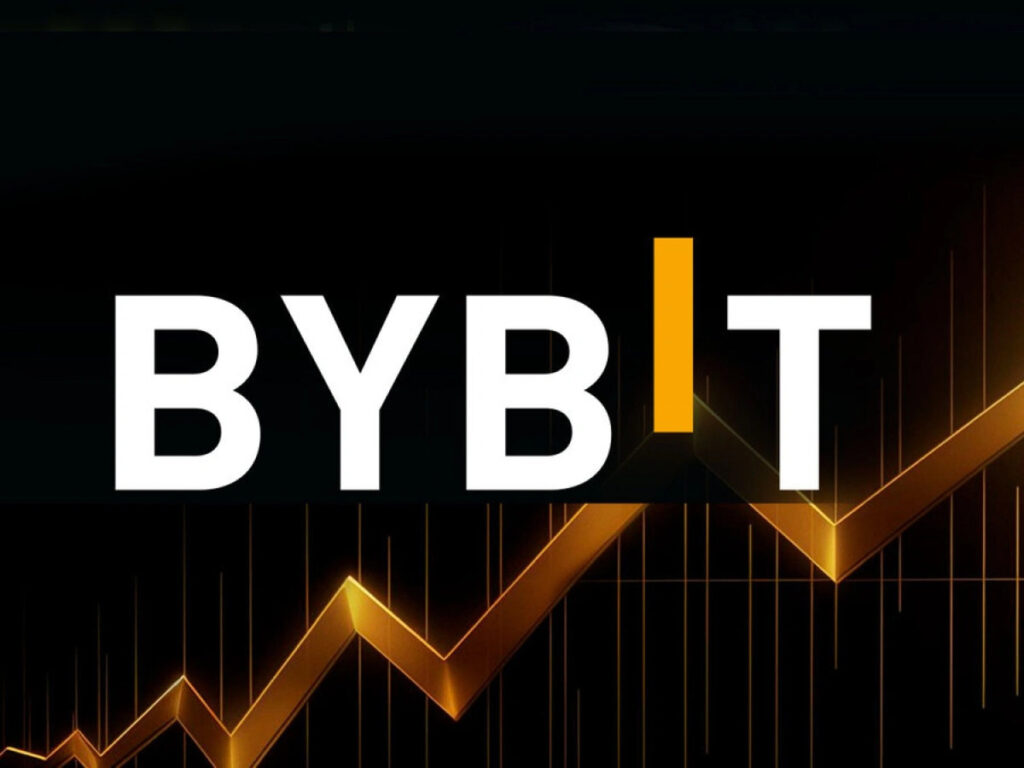How to Start Crypto Investing for Beginners: Complete 2025 Guide

Estimated reading time: 9 minutes
Key Takeaways
- Learn how to start crypto investing for beginners with proper education and research
- Beginner crypto investment requires choosing secure exchanges and understanding basic concepts
- Start investing cryptocurrency safely with proper wallet setup and security measures
- Crypto investing beginners should begin small and diversify gradually
- Understanding blockchain fundamentals is essential before you start crypto investing for beginners
Introduction: Your Path to Start Crypto Investing for Beginners
Understanding how to start crypto investing for beginners in 2025 requires more than just creating an exchange account. This comprehensive guide walks you through every essential step of beginner crypto investment, from understanding blockchain basics to making your first purchase safely.
Whether you’re completely new to digital assets or have been researching how to start investing cryptocurrency, this guide provides the practical framework you need to begin your journey confidently and securely.
For a comprehensive foundation in cryptocurrency fundamentals, visit our detailed Crypto for Beginners resource center.
Step 1: Educate Yourself Before You Start Crypto Investing for Beginners
The first crucial step in learning how to start crypto investing for beginners involves building a solid educational foundation. Understanding core concepts prevents costly mistakes and helps you make informed investment decisions.
Essential Concepts for Beginner Crypto Investment
Understanding Cryptocurrency Basics: Digital currencies operate independently of central banks, using cryptography for security. Bitcoin (BTC) pioneered this technology, while Ethereum (ETH) introduced smart contract capabilities that revolutionized the space.
Blockchain Technology Fundamentals: This distributed ledger technology ensures transparency and security in all cryptocurrency transactions. Every transaction is recorded across multiple computers, making it virtually impossible to alter historical records.
Volatility Awareness: Unlike traditional assets, cryptocurrencies experience significant price fluctuations. Understanding this volatility is essential before you start investing cryptocurrency, as prices can change dramatically within hours.
Key Learning Resources
Before proceeding with beginner crypto investment, familiarize yourself with:
- Cryptocurrency market cycles and price drivers
- Different types of digital assets (coins vs tokens)
- Blockchain consensus mechanisms
- Smart contracts and DeFi applications
Step 2: Choose a Reliable Exchange to Start Investing Cryptocurrency
Selecting the right platform is critical when learning how to start crypto investing for beginners. Your chosen exchange determines your trading experience, security level, and available investment options.
Top Exchanges for Beginner Crypto Investment
Coinbase – Best for Complete Beginners
- Intuitive interface designed specifically for new users
- Extensive educational resources with earn-while-learning programs
- Strong regulatory compliance and insurance protection
- Higher fees offset by superior user experience
Binance – Comprehensive Platform
- Largest cryptocurrency selection globally (350+ assets)
- Advanced features available as you grow
- Competitive fee structure with volume discounts
- Comprehensive mobile and desktop applications

Bybit – Advanced Tools Made Simple
- Professional trading interface with beginner mode
- Excellent derivatives trading for experienced users
- Strong security track record
- 24/7 multilingual customer support

Essential Exchange Evaluation Criteria
When deciding where to start crypto investing for beginners, evaluate:
Security Infrastructure: Look for platforms implementing:
- Cold storage for majority of user funds
- Multi-signature wallet technology
- Insurance coverage against breaches
- Regular security audits and penetration testing
Fee Structures: Compare trading costs including:
- Maker/taker fee percentages
- Deposit and withdrawal charges
- Network transaction fees
- Hidden costs in spread pricing
Regulatory Compliance: Ensure your chosen exchange:
- Maintains proper licensing in your jurisdiction
- Follows KYC/AML regulations
- Provides transparent operations
- Has clear terms of service
Step 3: Set Up and Verify Your Trading Account
Proper account setup is essential when you start investing cryptocurrency. This process ensures security and unlocks full platform functionality for your beginner crypto investment journey.
Account Creation Process for Crypto Investing Beginners
Registration Requirements:
- Provide valid email address and create strong password
- Enable two-factor authentication (2FA) immediately
- Save backup codes in secure location
- Set up email/SMS notifications for account activity
Identity Verification (KYC):
- Submit government-issued identification
- Provide proof of address (utility bill or bank statement)
- Complete facial verification if required
- Wait 1-3 business days for approval
Security Setup for Beginner Crypto Investment
Essential Security Measures:
- Use unique, complex passwords (20+ characters)
- Enable authenticator app 2FA (not SMS)
- Whitelist withdrawal addresses
- Set up transaction notifications
- Use dedicated email for crypto accounts
Step 4: Fund Your Account to Start Crypto Investing
Understanding deposit options helps you start crypto investing for beginners efficiently and cost-effectively. Different funding methods offer various advantages depending on your needs.
Deposit Methods for Beginner Crypto Investment
Bank Transfer (ACH/SEPA):
- Lowest fees (often free)
- Processing time: 1-5 business days
- Higher deposit limits
- Best for larger investments
Credit/Debit Card:
- Instant availability
- Higher fees (3-5% typical)
- Lower limits initially
- Convenient for urgent purchases
Cryptocurrency Transfer:
- No fiat conversion needed
- Network fees apply
- Instant availability after confirmations
- Best for experienced users
Funding Best Practices
When you start investing cryptocurrency:
- Begin with small test deposits
- Verify bank account details carefully
- Understand fee structures before depositing
- Keep records of all transactions for tax purposes
Step 5: Select Assets for Your Beginner Crypto Investment
Choosing appropriate cryptocurrencies is crucial when learning how to start crypto investing for beginners. Starting with established assets reduces risk while you develop market understanding.
Recommended Assets for Crypto Investing Beginners
Bitcoin (BTC) – Digital Gold Standard:
- Longest track record and highest market cap
- Most liquid cryptocurrency globally
- Viewed as store of value and inflation hedge
- Lower volatility compared to smaller coins
Ethereum (ETH) – Smart Contract Leader:
- Powers decentralized applications and DeFi
- Strong development community
- Transition to proof-of-stake complete
- Essential infrastructure for crypto ecosystem
Stablecoins (USDT, USDC) – Portfolio Stability:
- Pegged to USD for price stability
- Useful for taking profits or waiting for opportunities
- Lower risk entry into crypto ecosystem
- Essential for portfolio rebalancing
Diversification Strategy for Beginners
When you start investing cryptocurrency:
- Allocate 60-70% to Bitcoin and Ethereum initially
- Reserve 20-30% for established altcoins
- Keep 10% in stablecoins for opportunities
- Gradually explore new projects as knowledge grows
Step 6: Create Secure Storage Solutions
Proper cryptocurrency storage is essential when you start crypto investing for beginners. Understanding wallet types and security practices protects your beginner crypto investment from loss or theft.
Wallet Types for Beginner Crypto Investment
Hot Wallets (Online Storage):
- Mobile and desktop applications
- Convenient for active trading
- Quick access for transactions
- Higher security risk due to internet connection
Cold Wallets (Offline Storage):
- Hardware devices (Ledger, Trezor)
- Paper wallets for long-term storage
- Maximum security for large holdings
- Less convenient for frequent trading
Security Best Practices
Critical steps to start investing cryptocurrency safely:
- Never share private keys or seed phrases
- Store recovery phrases offline in multiple secure locations
- Use hardware wallets for holdings over $1,000
- Regularly update wallet software
- Verify recipient addresses carefully before transactions
Step 7: Execute Your First Cryptocurrency Purchase
Making your first trade is an exciting milestone when learning how to start crypto investing for beginners. Following proper procedures ensures a smooth and secure transaction experience.
Purchase Process for Crypto Investing Beginners
Order Types Explained:
Market Orders:
- Execute immediately at current price
- Best for beginners wanting simplicity
- May experience slippage on volatile assets
- Use for established, liquid cryptocurrencies
Limit Orders:
- Set specific purchase price
- Order executes when market reaches your price
- Better price control but no guarantee of execution
- Ideal for patient investors seeking value
Investment Amount Guidelines
When you start crypto investing for beginners:
- Invest only discretionary funds you can afford to lose
- Start with $50-500 for initial learning
- Use dollar-cost averaging to reduce timing risk
- Avoid investing borrowed money or emergency funds
Transaction Verification
Essential steps for beginner crypto investment:
- Review order details before confirming
- Verify cryptocurrency type and amount
- Check recipient address for withdrawals
- Save transaction IDs for records
- Monitor confirmation status
Step 8: Implement Your Investment Strategy
Developing a sound strategy is crucial when you start investing cryptocurrency. Beginner crypto investment success depends more on consistent strategy than perfect timing.
Investment Approaches for Crypto Investing Beginners
HODL Strategy (Buy and Hold):
- Purchase quality assets and hold long-term
- Ignore short-term price fluctuations
- Suitable for beginners with limited time
- Historical data supports multi-year holding periods
Dollar-Cost Averaging (DCA):
- Invest fixed amount at regular intervals
- Reduces impact of volatility
- Removes emotion from buying decisions
- Builds position gradually over time
Portfolio Rebalancing:
- Maintain target allocation percentages
- Sell winners to buy underperformers
- Implement quarterly or semi-annually
- Ensures diversification discipline
Strategy Implementation Tips
How to start crypto investing for beginners successfully:
- Write down your investment thesis
- Set clear entry and exit rules
- Avoid emotional decision-making during volatility
- Review and adjust strategy quarterly
- Track performance against goals
Step 9: Master Security and Risk Management
Understanding security threats is essential when you start crypto investing for beginners. Proper risk management protects your beginner crypto investment from common pitfalls and scams.
Essential Security Measures
Two-Factor Authentication (2FA):
- Use authenticator apps (Google, Authy)
- Avoid SMS-based 2FA when possible
- Back up 2FA codes securely
- Update authentication methods regularly
Phishing Protection:
- Verify website URLs before entering credentials
- Bookmark official exchange sites
- Never click links in unsolicited emails
- Be skeptical of “too good to be true” offers
Transaction Security:
- Double-check recipient addresses
- Start with small test transactions
- Understand that crypto transactions are irreversible
- Verify smart contract permissions before approving
Risk Management for Beginners
Critical practices to start investing cryptocurrency safely:
- Never invest more than you can afford to lose
- Diversify across multiple assets
- Keep emergency funds in traditional savings
- Understand tax implications in your jurisdiction
- Maintain detailed transaction records
Common Mistakes When Learning How to Start Crypto Investing for Beginners
Avoiding these errors accelerates your beginner crypto investment success and prevents unnecessary losses.
Investment Mistakes to Avoid
Over-concentration in Single Assets:
- Putting entire portfolio in one cryptocurrency
- Chasing hyped projects without research
- Ignoring Bitcoin and Ethereum fundamentals
- Failing to diversify across sectors
Emotional Trading Decisions:
- Panic selling during market downturns
- FOMO buying at price peaks
- Revenge trading after losses
- Following social media hype without verification
Security Lapses:
- Storing large amounts on exchanges
- Sharing private keys or passwords
- Falling for phishing scams
- Neglecting to backup wallet information
How to Avoid Mistakes
When you start crypto investing for beginners:
- Create and follow a written investment plan
- Set predetermined buy/sell rules
- Use hardware wallets for significant holdings
- Continuously educate yourself on market dynamics
- Join reputable crypto communities for learning
Tax Considerations for Crypto Investing Beginners
Understanding tax obligations is crucial when you start investing cryptocurrency. Proper tax planning prevents legal issues and optimizes your beginner crypto investment returns.
Tax Basics for Cryptocurrency
Taxable Events:
- Selling crypto for fiat currency
- Trading one cryptocurrency for another
- Using crypto to purchase goods/services
- Receiving crypto as income or rewards
Record Keeping Requirements:
- Date and time of each transaction
- Fair market value at transaction time
- Transaction purpose and parties involved
- Cost basis for purchased assets
- Exchange and wallet records
Tax Optimization Strategies
Practical approaches to start crypto investing for beginners:
- Use tax-loss harvesting strategically
- Hold assets over one year for long-term rates
- Maintain detailed transaction records
- Consult crypto-specialized accountants
- Consider tax-advantaged retirement accounts where available
Advanced Tips for Growing Crypto Investing Beginners
As you progress beyond initial beginner crypto investment stages, these advanced strategies help optimize your portfolio and increase sophistication.
Staking and Yield Generation
Proof-of-Stake Rewards:
- Earn passive income on holdings
- Ethereum, Cardano, and Solana offer staking
- Consider risks of lockup periods
- Research validator selection carefully
DeFi Yield Farming:
- Provide liquidity to earn rewards
- Higher returns come with higher risks
- Understand impermanent loss
- Start with established protocols
Portfolio Management Tools
Resources to start investing cryptocurrency more effectively:
- Portfolio trackers (CoinGecko, CoinMarketCap)
- Tax reporting software (CoinTracker, Koinly)
- Research platforms (Messari, Glassnode)
- Community resources (Reddit, Twitter, Discord)
Conclusion: Your Journey in How to Start Crypto Investing for Beginners
Learning how to start crypto investing for beginners requires education, patience, and disciplined execution. This comprehensive guide provides the framework for successful beginner crypto investment, covering everything from exchange selection to security practices.
Remember that successful cryptocurrency investing is a marathon, not a sprint. Start small, continue learning, and gradually build your portfolio as confidence and knowledge grow. The crypto market offers tremendous opportunities for those who approach it with proper preparation and realistic expectations.
Your journey to start investing cryptocurrency begins with a single step. Use this guide as your roadmap, maintain security best practices, and stay committed to continuous education. The 2025 cryptocurrency landscape presents exciting opportunities for prepared investors willing to learn and grow.
For comprehensive cryptocurrency education and ongoing market insights, return to our Crypto for Beginners hub regularly for updates and advanced tutorials.
FAQ
How much money do I need to start crypto investing for beginners?
You can start crypto investing for beginners with as little as $10-50. Most exchanges allow fractional purchases, meaning you don’t need to buy whole coins. However, $100-500 provides better diversification opportunities and makes transaction fees less impactful on your beginner crypto investment.
Is crypto investing safe for complete beginners?
Start investing cryptocurrency can be safe when following proper security practices and using reputable exchanges. Beginner crypto investment success depends on education, using secure wallets, enabling 2FA, and only investing amounts you can afford to lose. The market itself is volatile, but platforms and storage methods are secure when used correctly.
Which cryptocurrency should beginners invest in first?
When learning how to start crypto investing for beginners, start with Bitcoin (BTC) and Ethereum (ETH) as they’re the most established assets with longest track records. These represent 60-70% of most beginner crypto investment portfolios, with remaining allocation to smaller established projects.
How long should I hold my crypto investments?
Most successful crypto investing beginners adopt a long-term HODL strategy, holding for 2-5 years minimum. This approach reduces impact of volatility and has historically provided better returns. When you start investing cryptocurrency with long-term perspective, you’re less affected by short-term market fluctuations.
Do I need to pay taxes on cryptocurrency investments?
Yes, most countries treat cryptocurrency as taxable property. When you start crypto investing for beginners, understand that selling, trading, or spending crypto creates taxable events. Keep detailed records of all transactions for accurate tax reporting. Consult local tax professionals familiar with cryptocurrency regulations.
What’s the difference between an exchange and a wallet?
Exchanges are platforms where you start investing cryptocurrency by buying, selling, and trading assets. Wallets are storage solutions for your crypto holdings. For beginner crypto investment security, keep only trading amounts on exchanges and transfer long-term holdings to personal wallets you control.
How can I avoid cryptocurrency scams?
To start crypto investing for beginners safely, verify all website URLs, never share private keys, be skeptical of guaranteed returns, use only reputable exchanges, and research thoroughly before investing. When you start investing cryptocurrency, remember that legitimate opportunities never require urgent action or promise guaranteed profits.
Should I invest in cryptocurrency during a bear market?
Bear markets often present excellent opportunities for beginner crypto investment through dollar-cost averaging. When learning how to start crypto investing for beginners, understand that buying quality assets at lower prices during downturns has historically produced strong long-term returns. Focus on fundamentals rather than short-term price action.
